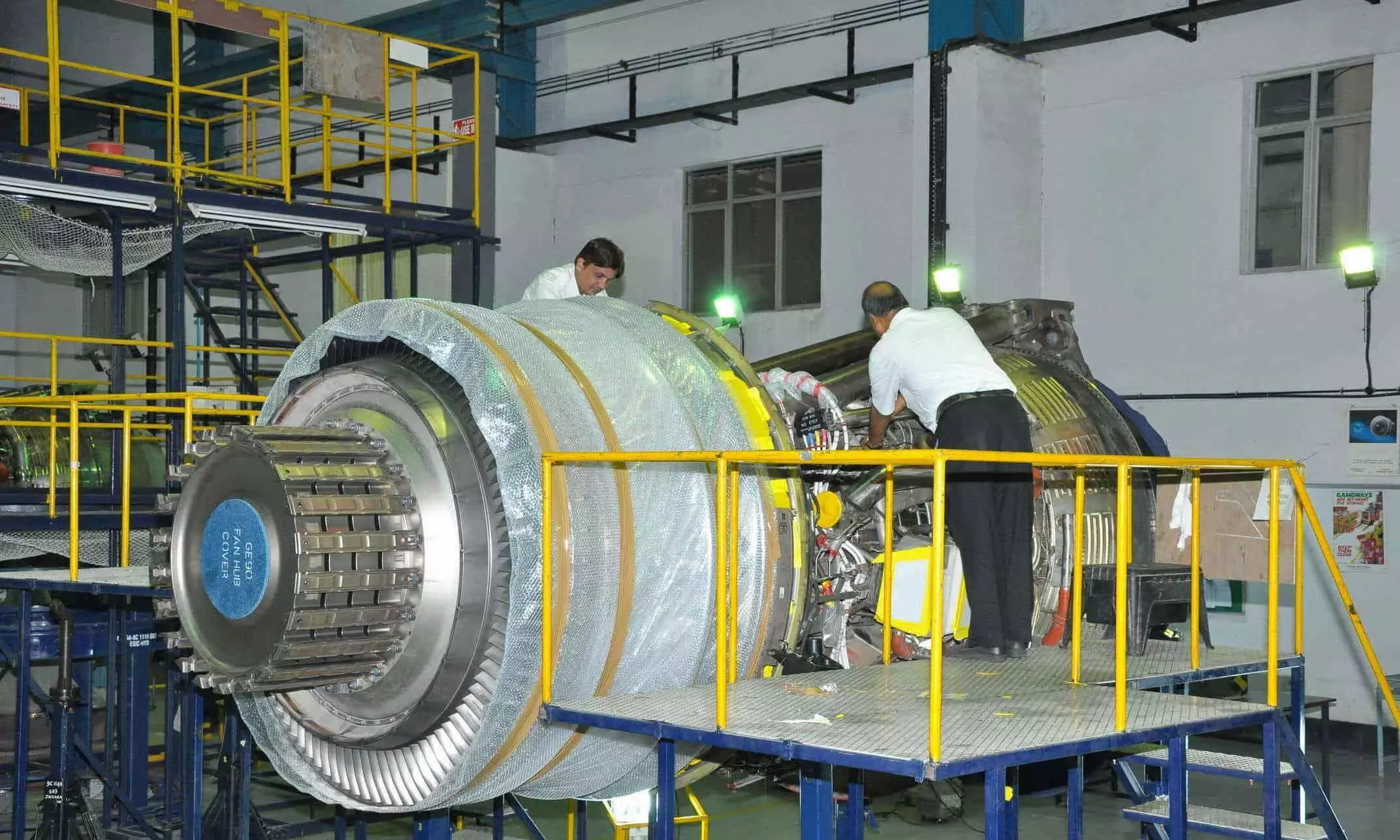
Indian MRO services revenue could zoom 3x in five years
Fleet expansion, favourable policies and upcoming infrastructure to drive growth, says Crisil study

(Photo Credit: AI Engineering Services)
Revenue of domestic maintenance, repair and overhaul (MRO) services providers is expected to triple to Rs 5,500-6,000 crore by 2028 from around Rs 1,800 crore currently, piggybacking on strong growth in domestic civil aviation, government support and ongoing MRO capex at airports.
That should help lower costs and improve utilisation, according to a study by Crisil Ratings of three MRO services providers accounting for more than 90 percent of the industry’s revenue.
Demand for MRO services, which correlates highly with the size of aircraft fleet, will get a shot in the arm from substantial orders that airline operators have placed to purchase aircraft with domestic fleet expected to be more than 1,000 by 2027 from around 700 as of March 2023, the study added.
"Consequently, the overall amount spent by Indian airlines on MRO services (both domestic and global) is projected to surpass Rs 25,000 crore by 2028 from around Rs 14,000 crore levels last fiscal. MRO services1 play an important role in ensuring airworthiness and availability of aircraft. Opting for domestic MRO services is generally considered cost-effective in terms of fuel and logistics and saves time as well."
Ankit Hakhu, Director, Crisil Ratings
Ankit Hakhu, Director, Crisil Ratings says: “The domestic MRO industry’s penetration rate is expected to reach 22-24 percent by fiscal 2028 from ~12% at present, piloted by the less-complex line-maintenance services. The engine and component maintenance segment, where global technical companies are investing to develop local capability, should also see penetration improve.”
Revenue per domestic aircraft fleet for Indian operators is less than Rs 5 crore against more than Rs 400 crore in Singapore, which caters to demand from other countries, including for aircraft from India, says the report.
“The government has introduced several policies over the past year to realise its vision of making the country a global MRO hub," says Varun Marwaha, Associate Director, Crisil Ratings. "The upshot of these will be a 10-20 percent reduction in the overall cost of MRO services.”
Policy measures include:
*Reducing Goods and Services Tax on MRO services from 18% to 5%
*Land lease via open tenders instead of predetermined rates, which should help reduce rental costs
*Abolishing 13 percent royalty charged by government authorities on revenue; and
*Allotting land to MRO service providers for 30 years instead of the current 3-5 years.
Varun Marwaha, Associate Director, Crisil Ratings
"Capacity additions have already started. The Delhi and Bengaluru airports have set up dedicated MRO facilities for select private airlines with more underway. Plans are also afoot to establish two MRO facilities near the new Jewar airport in Uttar Pradesh. Further, MRO facilities are planned to come up at the Belagavi (Karnataka), Bhopal (Madhya Pradesh) and Tirupati (Andhra Pradesh) airports."
Macroeconomic uncertainties, timely capex completion, transfer of critical technical knowhow and developments within competing MRO markets will be monitorable, the study added.
(Photo Credit: AI Engineering Services)

